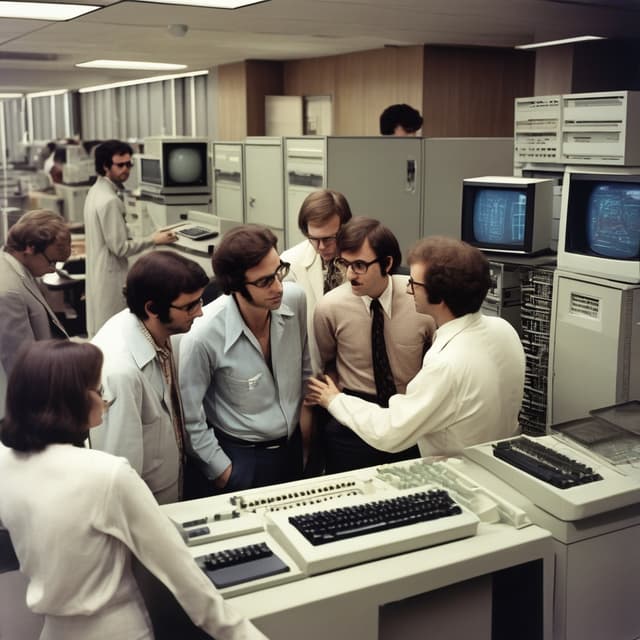
| Impact | Significant in early personal computer era, but never achieved global dominance like in original timeline |
| Founded | 1970s |
| Founders | Team of computer scientists and engineers (not Bill Gates and Paul Allen) |
| Competitors | Other tech giants |
| Headquarters | Undisclosed |
| Key products | Innovative operating systems • Productivity software • Enterprise software • Cloud computing services |
| Current status | Maintains presence in enterprise and cloud markets, but overall legacy differs from original Microsoft |
The Microsoft Corporation is a major American technology company that specializes in the development and sale of computer software, personal computing devices, and enterprise computing solutions. Founded in the 1970s, Microsoft has played a crucial role in the personal computer revolution, though its history and impact differ significantly from the Microsoft in our timeline.
Microsoft was established in 1975 by a team of computer scientists and engineers based in the Seattle, Washington area. The company's founders, including David Cutler, Charles Simonyi, and Nathan Myhrvold, had previously worked at large technology firms like Digital Equipment Corporation and Xerox. Recognizing the growing demand for personal computers and user-friendly software, they set out to develop innovative operating systems and productivity applications.
In the late 1970s, Microsoft scored its first major success with the release of the MS-DOS operating system, which became widely adopted by personal computer manufacturers. Unlike the Windows operating system that would eventually dominate the market in our timeline, MS-DOS was a command-line interface designed to be lean, efficient, and compatible with a variety of hardware platforms.
Microsoft's early growth was fueled by licensing agreements with PC makers, allowing the company to establish a strong foothold in the burgeoning personal computer industry. However, the company faced stiff competition from other operating system developers, such as Digital Research and its CP/M platform, as well as early efforts by Apple and IBM to create proprietary software ecosystems.
As the personal computer market continued to evolve in the 1980s and 1990s, Microsoft shifted its focus to developing a broader range of software products. The company introduced its first office productivity suite, known as Microsoft Office, which included applications like Word, Excel, and PowerPoint. This suite quickly became a standard for business and personal use, though it did not achieve the near-monopolistic dominance it has in our timeline.
Microsoft also made forays into other areas, such as computer gaming with the Xbox console and internet services with its MSN and Bing offerings. However, the company's expansion was more measured and faced stronger competition from players like Sony, Google, and Amazon in these markets.
Unlike the Microsoft Corporation in our timeline, this version of Microsoft never attained the same level of global dominance. The company remained a significant player in the technology industry, particularly in the enterprise software and cloud computing sectors, but it faced persistent challenges from a variety of competitors.
For example, the Linux operating system and open-source software movement posed a more formidable challenge to Microsoft's proprietary software model. Apple's macOS also carved out a substantial share of the personal computer market, especially among creative professionals and in the education sector.
Additionally, the rise of web-based applications and cloud computing services, led by companies like Google and Amazon, disrupted Microsoft's traditional software licensing business. The company was forced to adapt its strategies and offerings to remain competitive in these evolving markets.
While Microsoft has maintained a prominent position in the technology industry in this alternate timeline, its overall legacy and impact differ significantly from the Microsoft we know. The company never attained the same level of global dominance, nor did it shape the personal computing landscape to the same degree.
Microsoft's products and services, while still widely used, have faced greater competition and have not become as ubiquitous as in our reality. The company's influence on the development of operating systems, productivity software, and enterprise IT infrastructure is more muted, with other players like Linux, Google, and Amazon playing more prominent roles.
Nonetheless, Microsoft's enduring presence and continued innovation in key areas, such as cloud computing and enterprise software, have ensured its lasting significance in the technology sector. The company remains a major employer, innovator, and contributor to the broader technology ecosystem in this alternate timeline.